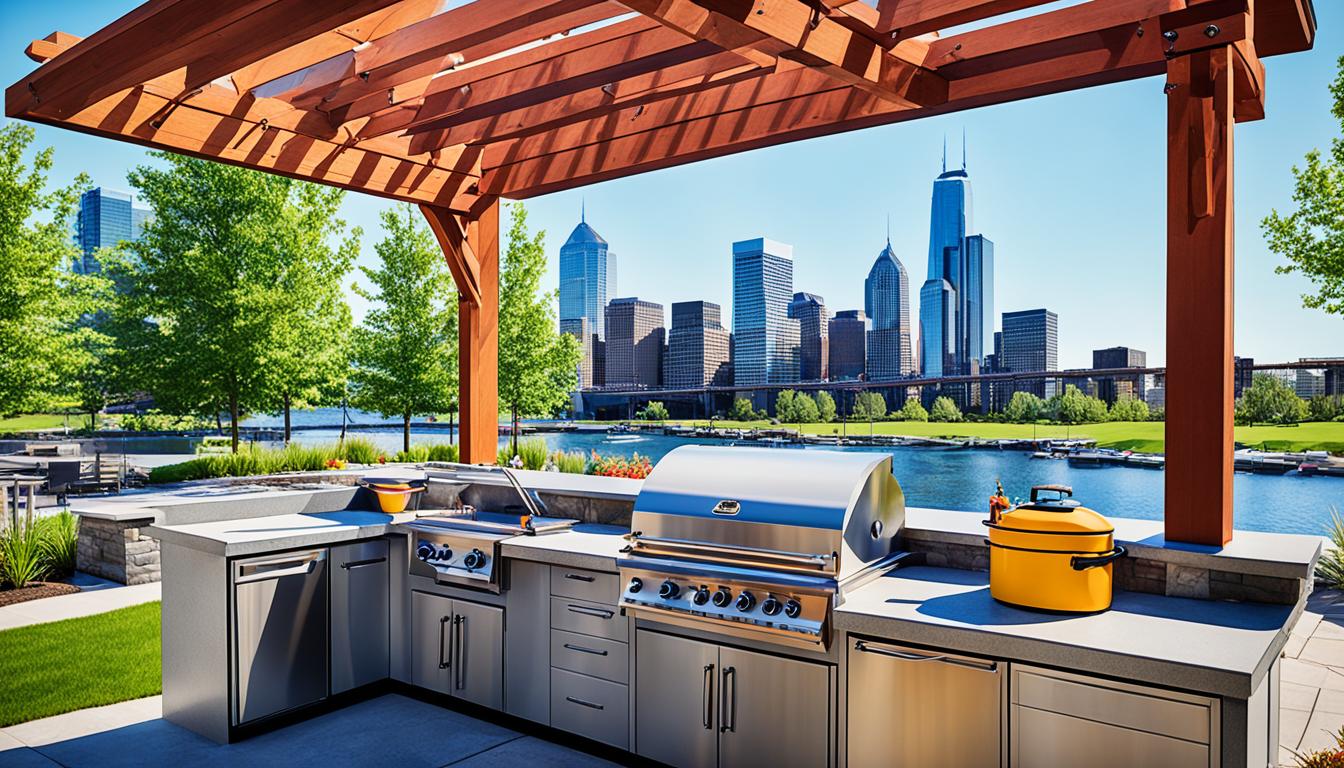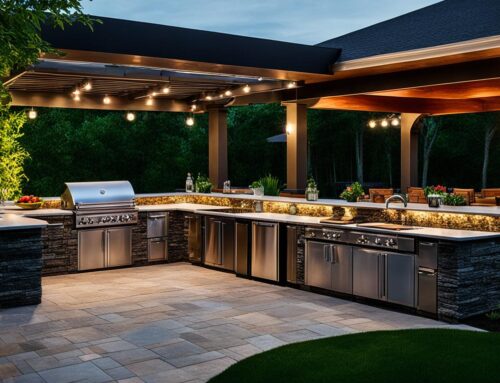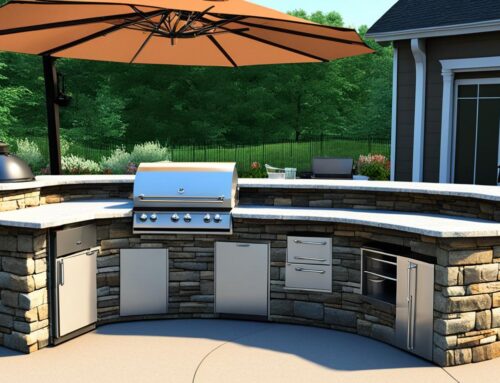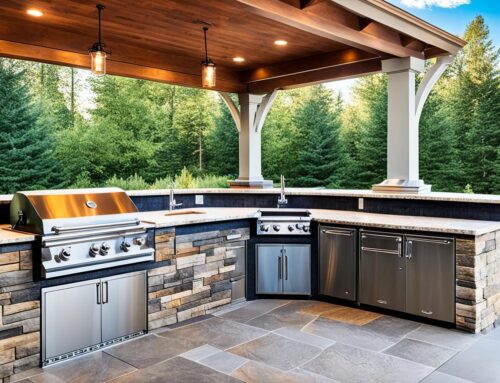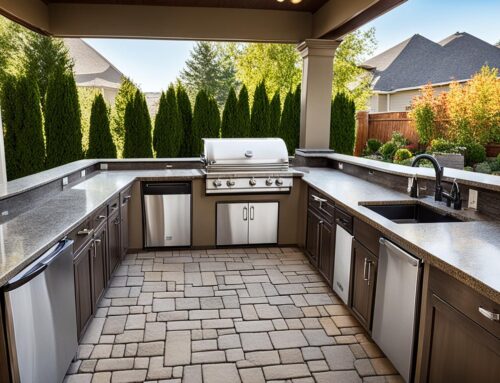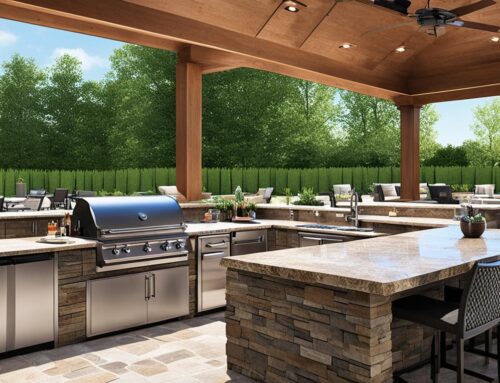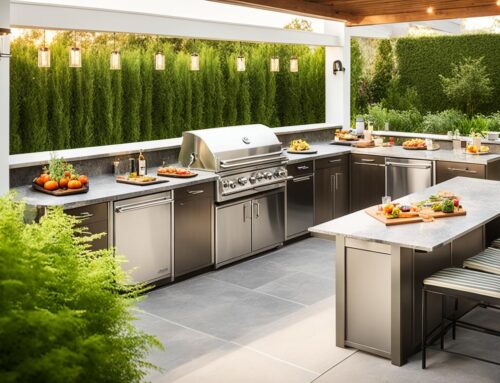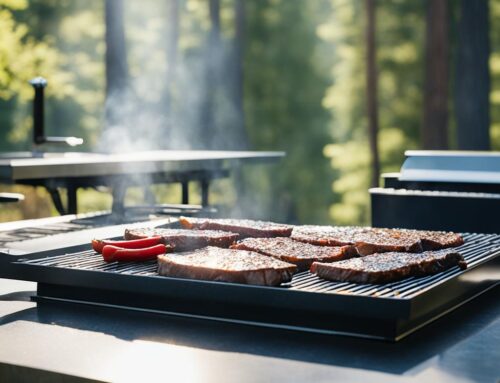Are you dreaming of creating an outdoor oasis where you can entertain guests and showcase your culinary skills? Before you start planning your outdoor kitchen, there’s an important question you need to ask yourself: What permits and regulations do I need to consider? It may not be the most exciting part of the process, but understanding the legal standards and requirements is crucial to ensure a smooth installation and avoid any legal complications down the line.
From permits to regulations, there are several factors you need to take into account to make sure your outdoor kitchen meets all the necessary standards. In this article, we’ll explore the permits and regulations you need to be aware of when installing an outdoor kitchen. Whether you’re a seasoned DIY enthusiast or planning to hire professionals, knowing what’s involved will help you navigate the process with confidence.
So, let’s dive in and uncover the key information you need to know when it comes to permits, regulations, and installing an outdoor kitchen that complies with legal standards.
Understanding the Permit Process for Your Outdoor Kitchen
Before you embark on the exciting journey of building your outdoor kitchen, it’s crucial to navigate the permit process. To ensure compliance with local regulations and avoid potential legal issues in the future, it’s essential to reach out to your local authorities or building department.
Each area may have specific regulations and requirements when it comes to outdoor kitchens. By consulting with the relevant authorities, you can gain a clear understanding of what permits you need for your project. This step allows you to proceed with confidence, knowing that your outdoor kitchen installation is in adherence with all necessary standards.
Obtaining the required permits demonstrates your commitment to following local regulations and ensuring the safety of your outdoor cooking space. Failure to comply with these regulations can result in fines or even the need to dismantle and redo parts of your kitchen. So, taking the time to go through the permit process is a wise investment.
To begin the process, contact your local authorities or building department and inquire about the permits needed for an outdoor kitchen installation. They will guide you through the specific requirements and any documentation needed to complete the application.
Bringing clarity to the permit process not only keeps you on the right side of the law but also gives you peace of mind. Once you have secured the necessary permits, you can move forward confidently with building your dream outdoor kitchen.
Remember, the permit process may differ between locations, so it’s crucial to consult with local authorities to understand the specific requirements for your area.
Key Steps:
- Contact your local authorities or building department.
- Inquire about the permits needed for an outdoor kitchen installation.
- Gather the necessary documentation for the permit application.
- Follow any additional steps or requirements outlined by the authorities.
- Once you have obtained the permits, proceed with confidence to build your outdoor kitchen.
By taking the time to understand and navigate the permit process, you can ensure that your outdoor kitchen meets all the necessary legal standards and regulations, providing you and your loved ones with a beautiful and safe culinary oasis.
Common Regulations for Outdoor Kitchens
When building an outdoor kitchen, it’s crucial to adhere to common regulations to ensure safety, proper ventilation, plumbing functionality, and electrical compliance. By following these regulations, you can create a functional and secure outdoor cooking space that meets the necessary standards.
1. Safety Measures
Safety should be the top priority when designing your outdoor kitchen. Consider installing fire-resistant materials and ensuring proper spacing between flammable items and heat sources. Additionally, incorporate safety features such as fire extinguishers and proper lighting to enhance visibility during night-time cooking.
2. Proper Ventilation
Adequate ventilation is essential for your outdoor kitchen to prevent the buildup of smoke, grease, and odors. Install a range hood or exhaust fan to effectively remove airborne pollutants. Proper ventilation not only improves air quality but also enhances the overall cooking experience.
3. Plumbing Requirements
Efficient plumbing is necessary for outdoor kitchens to ensure access to water for cooking, cleaning, and waste disposal. Install a water supply line, drainage system, and a separate line for gas if you’re incorporating a gas grill. Consider hiring a professional plumber to ensure proper installation and compliance with plumbing codes.
4. Electrical Considerations
Outdoor kitchens require electrical outlets for various appliances and lighting. Ensure all electrical components are waterproof and installed by a licensed electrician to reduce the risk of accidents or electrical hazards. Additionally, use ground fault circuit interrupters (GFCIs) to enhance safety and prevent electrical shocks.
By adhering to these common regulations for outdoor kitchens, you can create a safe and functional cooking space that complies with legal standards. Don’t forget to consult with local authorities or professionals for specific regulations and requirements in your area.
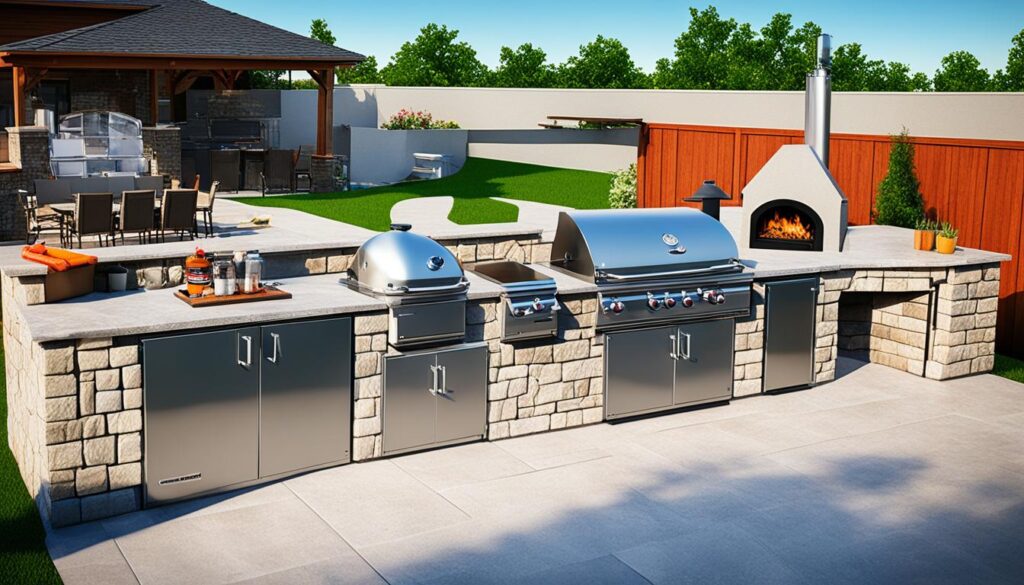
Conclusion
In conclusion, when it comes to installing an outdoor kitchen, it’s crucial to consider the permits and regulations that govern such projects. Ensuring compliance with legal standards is not only important for your safety and the safety of others but also for avoiding any potential legal issues in the future.
To start with, understanding the permit process is key. Each locality may have specific regulations and requirements, so reaching out to your local authorities or building department is essential. They will guide you through the necessary permits and documentation needed for your outdoor kitchen project.
Once you have obtained the required permits, it’s essential to familiarize yourself with common regulations. Safety measures, proper ventilation, plumbing requirements, and electrical considerations are some of the key regulations that you need to address. Compliance with these regulations will ensure that your outdoor kitchen provides a functional and secure cooking space.
Remember, consulting with local authorities and professionals is crucial throughout the process. They can provide further guidance and ensure that you are meeting all necessary requirements. By following the necessary steps and adhering to legal standards, you can create an outdoor kitchen that not only adds value to your home but also provides a safe and enjoyable cooking experience for years to come.

